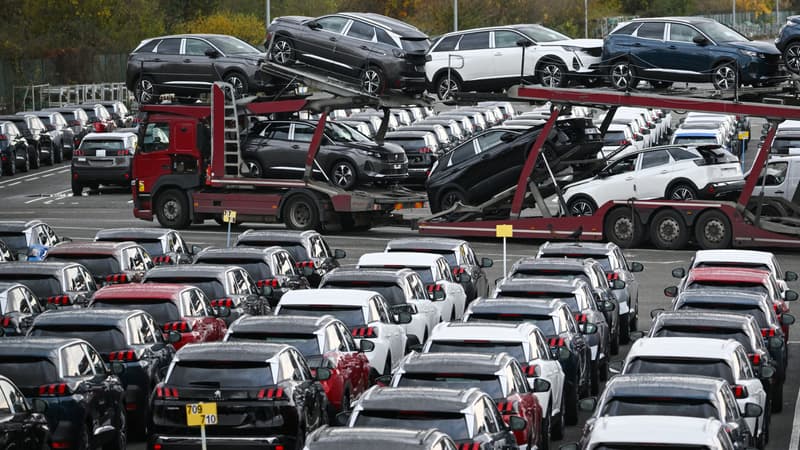Paralyzed by logistical problems, the European market for new cars will return in 2022 to its 1993 level, the manufacturers’ association (ACEA) said on Wednesday, January 18.
4.6% decrease compared to 2021
Despite a slight improvement in sales since August, the market fell 4.6% for the year, with 9.3 million vehicles sold.
This is almost as little as in 1993, a black year for the industry with its 9.2 million vehicles sold.
2022 is thus a third difficult year for the industry, after a 2020 marked by the closure of factories and sanitary restrictions, and a 2021 marked by a shortage of electronic chips, essential for assembling cars, and logistical problems, which hopes have been dashed. of a lasting recovery.
In 2022, among the main markets, only Germany remained stable (+1.1%), with a great month of December.
France, Italy and Spain fall sharply
France decreased during the year by 7.8%, Italy by 9.7%, Spain by 5.4%, Poland by 6%, the Netherlands by 3.2% and Belgium by 4.4%.
The favorable end of the year, with five consecutive months of growth and a month of December at +12.8%, did not reach a start to the year that was greatly slowed down by the shortage of chips, underlined the ACEA in a press release.
The European market leader, the Volkswagen group, is doing well with a good end to the year and 2.3 million vehicles sold in 2022, for a stable market share of 25.1%.
The group has privileged its premium brands Audi and Porsche, which are registering good sales, to the detriment of its general brands such as Skoda and Seat.
Stellantis in free fall, Renault resists a little better
After having held up well in 2021, the Stellantis No. 2 shows a steeper drop (-14.1%), for a market share up to 19.7%. Jeep, Citroën and Fiat are among the brands that have experienced the sharpest slowdown.
The Renault group holds up well (-4.3%) thanks to the performance of its low-cost brand Dacia, and maintains a market share of 10.6%.
The Korean group Hyundai-Kia, better protected from shortages, posted a good year (+2.6%) with a market share of up to 9.2%.
Toyota jumped for the second year in a row (+7.7%, 6.3% market share) with its hybrid cars.
BMW-Mini fell 5.1%, while Mercedes was flat.
Source: BFM TV


